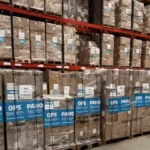In a dramatic twist that rattled financial markets worldwide, the U.S. administration has taken a sharp stance against China by rolling out a fresh wave of tariffs. The move comes amid an intensifying trade dispute that experts fear could have long-lasting repercussions for the global economy.
U.S. President Donald Trump, never one to shy away from a provocative message, took to his social media platform to emphasize his unwavering commitment to the new trade measures. Dismissing the market’s nervous reaction as a temporary dip, he argued that this turbulence presents a prime opportunity for investors ready to seize the moment.
Despite the president’s confident assertions, major indices took a severe hit, with declines nearing 6% as panic spread across Wall Street, Asia, and Europe. Federal Reserve Chairman Jerome Powell issued a stern reminder that such protectionist policies might stoke inflation and dampen economic growth over the long run.
In response to the U.S. tariffs, China has swiftly imposed a 34% duty on American imports, set to take effect on April 10. This counteraction is just the latest salvo in what appears to be an unyielding trade battle, with Beijing also hinting at potential legal action through the World Trade Organization and further restrictions on the export of critical rare earth elements vital to high-tech industries.
The ripple effects of this tit-for-tat escalation have not been confined to Washington and Beijing. European officials, cautious but resolute, have signaled that while they are monitoring the situation closely, any response will be measured and coordinated. Meanwhile, leaders in Japan and Vietnam are urging a balanced approach to avoid deepening the economic fray.
The new tariff policies have sparked fierce debates within the U.S. political landscape. Critics argue that the aggressive stance could jeopardize American jobs and undermine economic stability, while supporters insist it’s a necessary step to reassert domestic manufacturing and level the playing field. This discord has even reached the corporate world, with companies like Nintendo delaying product launches as they reassess the evolving trade environment.
As international markets continue to reel from the shockwaves of this economic showdown, investors and policymakers alike are bracing for a protracted period of uncertainty. The coming weeks will be crucial in determining whether these measures can recalibrate the global trade balance or if they will spiral into a broader economic conflict.
Stay tuned as we follow this unfolding story and its implications for the world economy.






